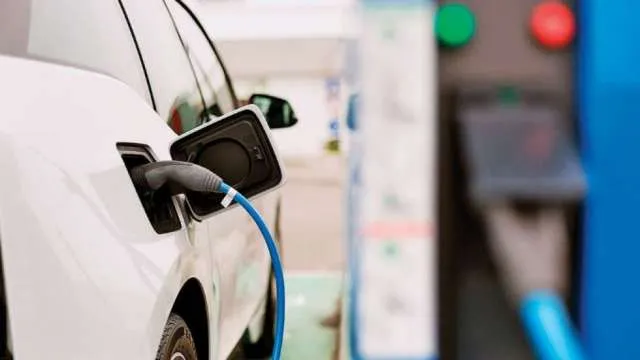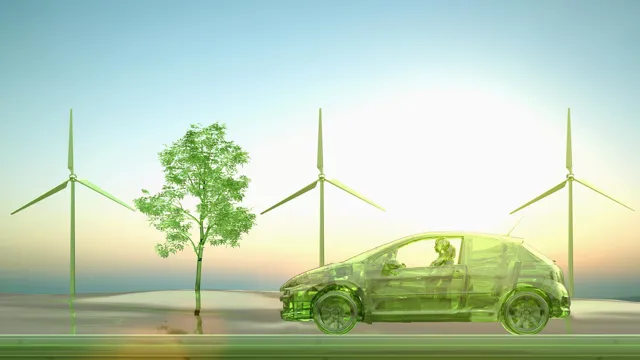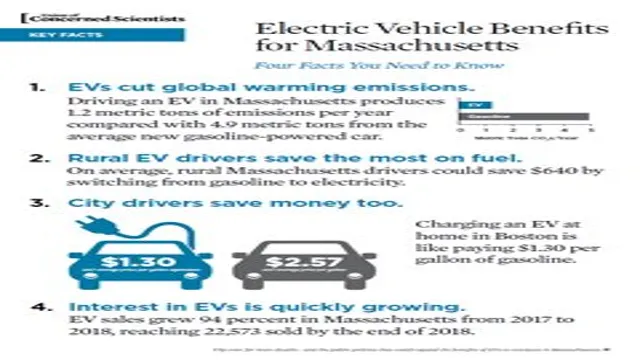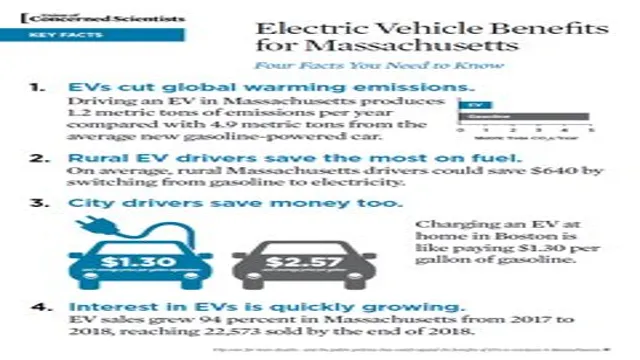Driving into the Future: Discovering the Ecological and Economic Benefits of Electric Cars in Norway
Electric cars have become increasingly popular in recent years, with more and more people considering making the switch from gas-powered vehicles. However, in Norway, electric cars have already taken the country by storm. In fact, Norway has one of the highest electric car ownership rates in the world, with electric cars accounting for almost 50% of all new cars sold in 2020.
What makes electric cars in Norway so desirable, you might ask? Well, there are plenty of benefits that come with driving electric in Norway. From lower costs to environmental conservation, let’s take a closer look at the advantages of owning an electric car in Norway.
Environmental Impact
Electric cars have become a popular choice among many environmentally-conscious individuals in Norway, and it’s easy to see why. One of the biggest benefits of electric cars is their reduced environmental impact. Unlike traditional gas-powered cars, electric cars don’t emit harmful pollutants into the air, which not only reduces air pollution but also provides a safer and cleaner environment for everyone.
Another environmentally-friendly feature of electric cars is that they don’t require as much maintenance as traditional cars since they have fewer moving parts, which means less damage to the environment. Additionally, electric cars are often powered by renewable energy sources, reducing dependence on fossil fuels that contribute to climate change. With Norway’s extensive network of charging stations and incentives for purchasing electric cars, it’s no surprise that it’s becoming the norm for individuals to switch to these cleaner, more sustainable vehicles.
Reduction in CO2 Emissions
When discussing the environmental impact of our actions, one of the biggest concerns is the amount of CO2 emissions we release into the atmosphere. Carbon dioxide is a greenhouse gas that contributes to global warming and climate change. However, there has been a reduction in CO2 emissions in recent years due to a variety of factors.
One of the main drivers of this reduction is the shift towards renewable energy sources such as wind, solar, and hydroelectric power. These sources are becoming more competitive with traditional fossil fuels like coal and oil, making it easier and more affordable for individuals and businesses to switch to cleaner options. Additionally, efforts to improve energy efficiency and reduce waste have also contributed to the decrease in CO2 emissions.
While there is still much work to be done to combat climate change, the reduction in CO2 emissions is a positive step towards a more sustainable future.
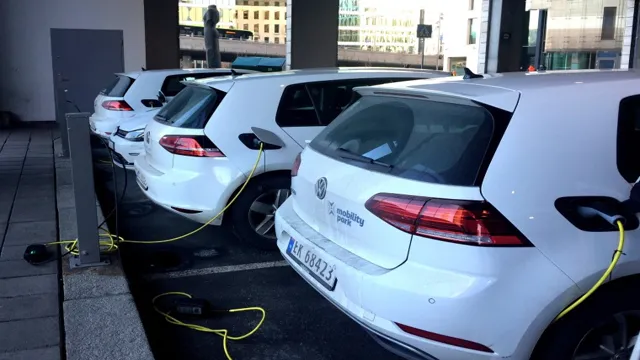
Less Air and Noise Pollution
As the world continues to face environmental challenges, one of the most pressing issues that has come to the fore is air and noise pollution. With more and more people opting for private transportation options like cars and motorbikes, the levels of air pollution have soared in recent years. The same holds for noise pollution which is mainly caused by loud vehicles and heavy traffic.
However, the rise of ride-sharing services like Uber and Lyft has brought about a change in this trend. With more people sharing rides, there are fewer cars on the road, and this directly translates to less air pollution. In addition, ride-sharing services use modern vehicles that emit fewer pollutants, further reducing the environmental impact.
Furthermore, ride-sharing services have helped reduce noise pollution by reducing traffic congestion and the need for honking. All in all, ride-sharing services have helped make our cities cleaner and quieter, and this is certainly a step in the right direction towards building a sustainable future for us all.
Cost Savings
One of the biggest benefits of electric cars in Norway is the cost savings they offer. While the upfront cost of an electric car may be more than a traditional gasoline-powered car, the long-term savings are significant. For starters, electric cars are exempt from many of the taxes and fees associated with combustion engines, like road taxes and value-added tax.
In addition, the cost of running an electric car is much lower than a gas car. In Norway, electricity is relatively inexpensive, which means that the cost of charging an electric car is significantly less than the cost of filling up a gas tank. On average, electric cars in Norway cost around $300 per year to run, compared to $1,500 or more for gas cars.
Finally, electric cars require much less maintenance than gas cars, meaning that you’ll save money on things like oil changes and brake jobs. All in all, the cost savings associated with electric cars in Norway make them an appealing option for those looking to save money in the long run.
Lower Fuel Costs
Lower fuel costs are a major concern for many vehicle owners. With the constantly rising prices of gasoline, it’s important to take steps to reduce fuel consumption. One of the most effective ways to achieve this is by making sure that your vehicle is well-maintained.
Properly inflated tires, clean air filters, and regular tune-ups can go a long way in improving your car’s gas mileage. Another simple strategy is to avoid idling your vehicle unnecessarily. When you’re stuck in traffic or waiting for someone, turn off the engine instead of letting it run.
Additionally, try to plan your trips ahead of time to avoid unnecessary driving. By combining these strategies, you can significantly reduce your fuel costs. In addition, switching to a more fuel-efficient vehicle can help you save even more money in the long run.
So, if you’re tired of paying too much at the pump, start taking steps to lower your fuel costs today!
Tax Incentives and Rebates
Tax incentives and rebates can save you a lot of money in the long run. These programs are designed to promote certain behaviors or practices that benefit the economy, environment, or society as a whole. As a result, you may qualify for tax deductions, credits, or exemptions if you meet specific criteria.
For example, if you install solar panels, purchase an electric vehicle, or make energy-efficient upgrades to your home, you may be eligible for tax incentives or rebates that can lower your overall costs. Furthermore, these incentives and rebates can also help you offset the upfront costs of these investments, making it easier for you to transition to a more sustainable lifestyle. So if you’re looking for ways to save money while also doing your part for the planet, consider taking advantage of tax incentives and rebates.
Not only will you be helping the environment, but you’ll also be able to enjoy long-term cost savings that can benefit you and your family for years to come.
Cheaper Maintenance
As a homeowner, you are always on the lookout for ways to save money, and one area where you can make significant cost savings is in maintenance. Choosing cheaper maintenance options can help you save money in the long run. For example, opting for a programmable thermostat instead of a traditional one can reduce your energy bills significantly.
Similarly, using LED lightbulbs instead of traditional bulbs can save you money on your electricity bill. Additionally, you can learn basic DIY maintenance tasks like fixing a leaky faucet, unclogging drains, and changing air filters, which can all save you money on professional services. So, if you’re looking to minimize your home maintenance expenses, explore these cheaper options and see the savings add up!
Infrastructure Support
When it comes to electric cars, Norway is leading the way. In fact, the benefits of electric cars in Norway are numerous. One of the biggest advantages is the infrastructure support that they receive.
For example, there are over 10,000 public charging stations across the country, making it easy to charge up on the go. In addition, the government offers incentives such as free or cheaper tolls, ferry crossings, and parking to electric car owners. This makes it more cost-effective to own an electric car than a traditional petrol car.
Furthermore, Norway is committed to phasing out the sale of new petrol and diesel vehicles by 2025, which will only increase the infrastructure support for electric cars. Ultimately, the combination of government incentives and widespread charging infrastructure make Norway the ideal place to own an electric car.
Extensive Charging Network
Electric vehicles are becoming increasingly popular due to their environmental benefits and fuel efficiency. However, one of the biggest concerns of electric vehicle owners is access to charging infrastructure. Fortunately, the extensive charging network is growing to support the growing number of electric vehicles on the road.
Nowadays, there are various types of charging stations available throughout the country, from Level 1 charging stations that use a standard household outlet to Level 3 DC fast chargers that can charge a car in just 30 minutes. These charging stations can be found in public places, parking lots, and even in private homes. In addition, more and more businesses and cities are investing in charging infrastructure to attract electric vehicle drivers.
This increasing availability of charging infrastructure is making electric vehicles more accessible for everyday use, helping to reduce carbon emissions while saving money on fuel costs.
Free Charging at Public Charging Stations
If you’re an electric vehicle owner, one of the most crucial aspects of your driving experience is access to public charging stations. While there’s no doubt that the number of charging stations worldwide is constantly on the rise, there’s still work to be done in terms of ensuring sufficient infrastructure support. This is where the concept of free charging at public charging stations comes into play.
By providing a cost-effective way for EV owners to charge their vehicles, free charging stations can go a long way in encouraging electric vehicle adoption. However, it’s important to note that while such charging stations may be free to use, they may still require payment for parking or other services. This is why it’s crucial for governments and local authorities to work together with private businesses to create a robust network of affordable, convenient, and accessible charging stations.
With the right level of infrastructure support, the electric vehicle revolution can truly take off, benefiting both the environment and the economy as a whole.
Government Support
One of the biggest advantages of owning an electric car in Norway is the generous amount of government support available. The Norwegian government offers a range of incentives to encourage the adoption of electric vehicles, including tax exemptions, reduced toll charges, and free parking in many public areas. In addition, electric car owners in Norway are also eligible for financial incentives such as the Electric Vehicle subsidy, which provides up to NOK 50,000 (around $5,500) toward the purchase price of a new EV.
This support has helped to make EVs more affordable and accessible to Norwegian consumers, and as a result, Norway has become one of the world’s leading markets for electric cars. In fact, electric cars now account for over 50% of all new car sales in Norway, demonstrating the success of the government’s support initiatives in driving the growth of this emerging sector. So, if you’re thinking about switching to an electric car, Norway could be the perfect place to do it, thanks to the numerous benefits on offer!
Conclusion
In Norway, the benefits of electric cars run deep like the fjords and are as refreshing as a dip in a Norwegian lake. With generous incentives, a well-developed charging infrastructure, and a commitment to clean energy, Norwegians have embraced electric cars with open arms. They not only reduce greenhouse gas emissions and air pollution but also bring economic benefits by reducing oil dependence.
By driving towards a sustainable future, Norwegians are showing the world that electric cars are not just a passing trend but rather a hopeful sign of what can be achieved when we prioritize the health of our planet.”
FAQs
What is the percentage of electric cars on the roads in Norway?
As of January 2021, the Norwegian Roads Authority reported that electric vehicles make up almost 75% of new car sales in the country, and about 8% of the total vehicle fleet on Norwegian roads.
What are the main benefits of electric cars in Norway?
There are several benefits of electric cars in Norway, including reduced carbon emissions, lower fuel costs, reduced noise pollution, and access to bus lanes, toll-free roads, and free parking in some areas.
What incentives does Norway offer for electric car owners?
Norway offers a range of incentives for electric car owners, including tax exemptions, reduced tolls, free charging at public charging points, and reduced ferry fares for electric vehicles.
What challenges do electric car owners face in Norway?
Despite the many benefits, electric car owners in Norway face a few challenges, including limited charging infrastructure in some areas, long waiting lists for popular models, and higher upfront costs compared to traditional cars.

